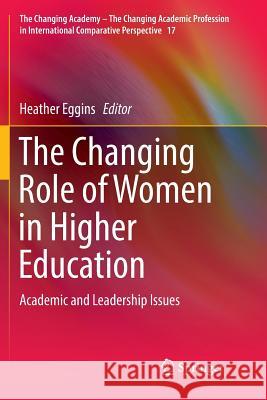The Changing Role of Women in Higher Education: Academic and Leadership Issues » książka
topmenu
The Changing Role of Women in Higher Education: Academic and Leadership Issues
ISBN-13: 9783319825809 / Angielski / Miękka / 2018 / 310 str.
Kategorie:
Kategorie BISAC:
Wydawca:
Springer
Seria wydawnicza:
Język:
Angielski
ISBN-13:
9783319825809
Rok wydania:
2018
Wydanie:
Softcover Repri
Ilość stron:
310
Waga:
0.47 kg
Wymiary:
23.39 x 15.6 x 1.8
Oprawa:
Miękka
Wolumenów:
01
Dodatkowe informacje:
Wydanie ilustrowane











